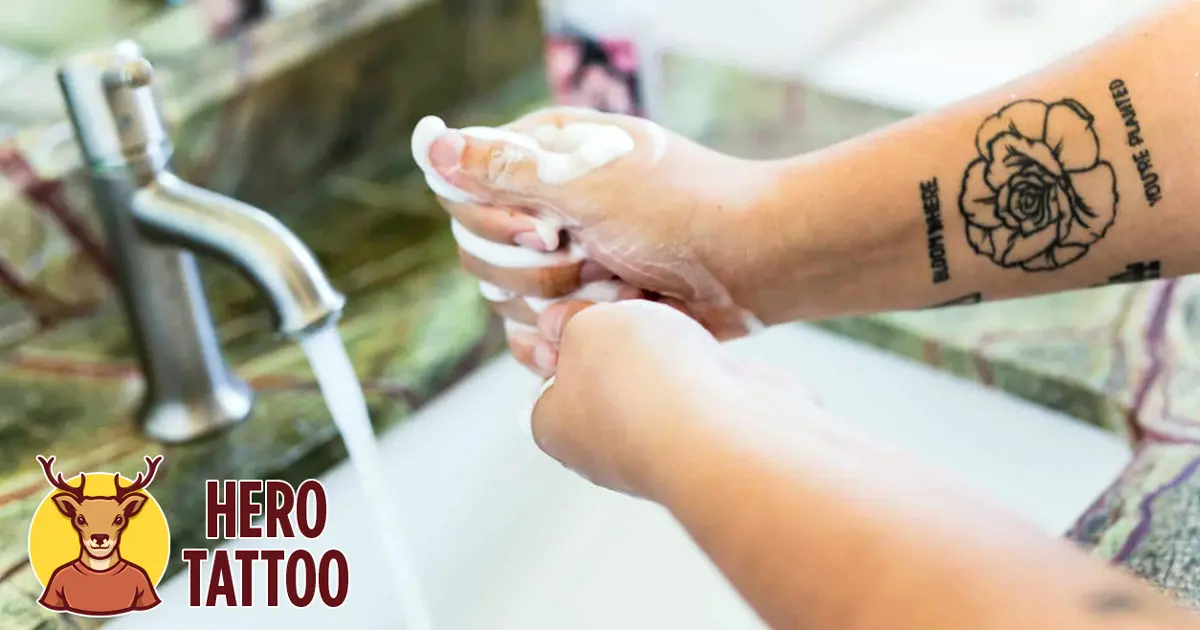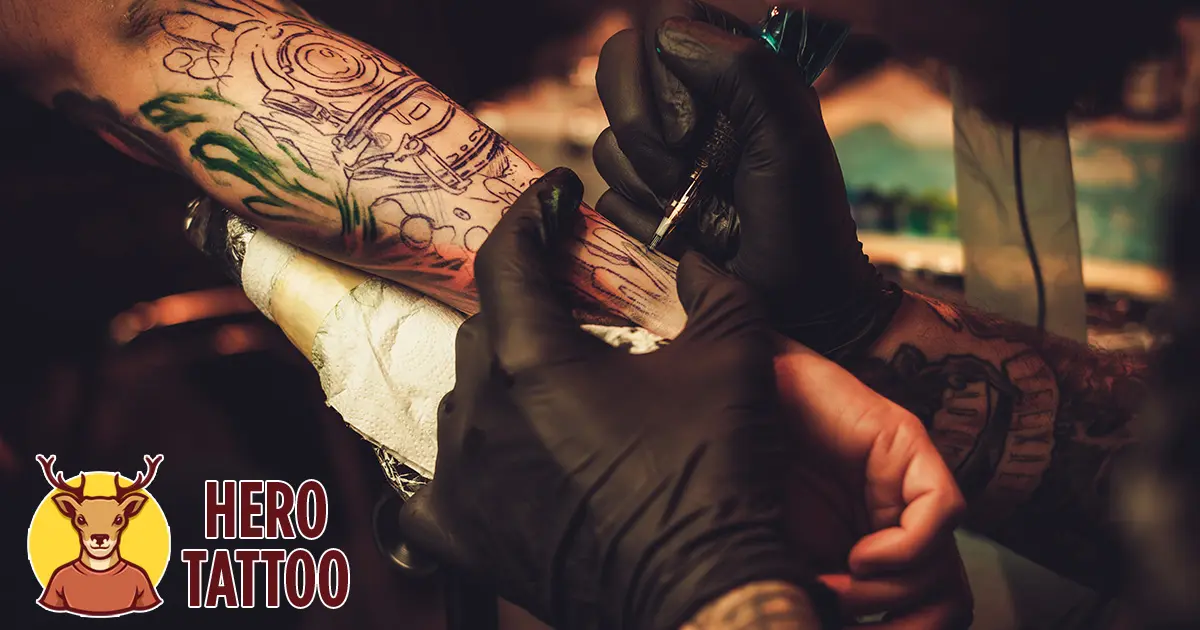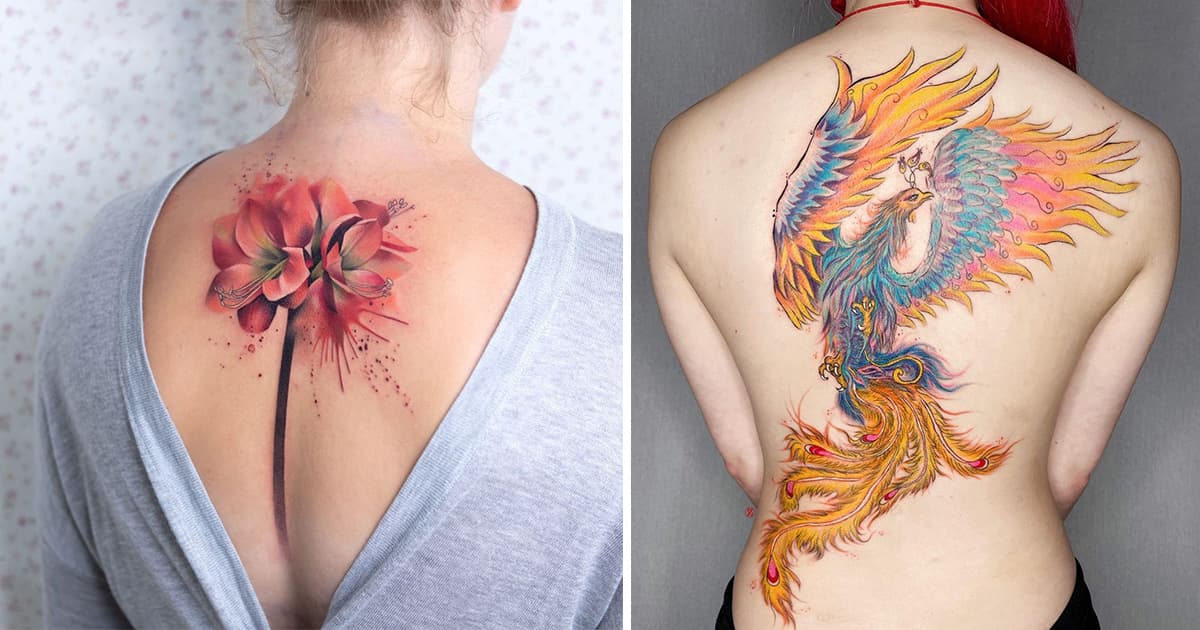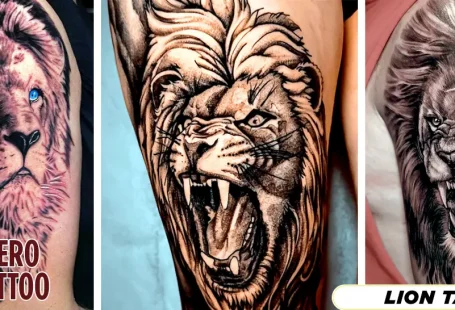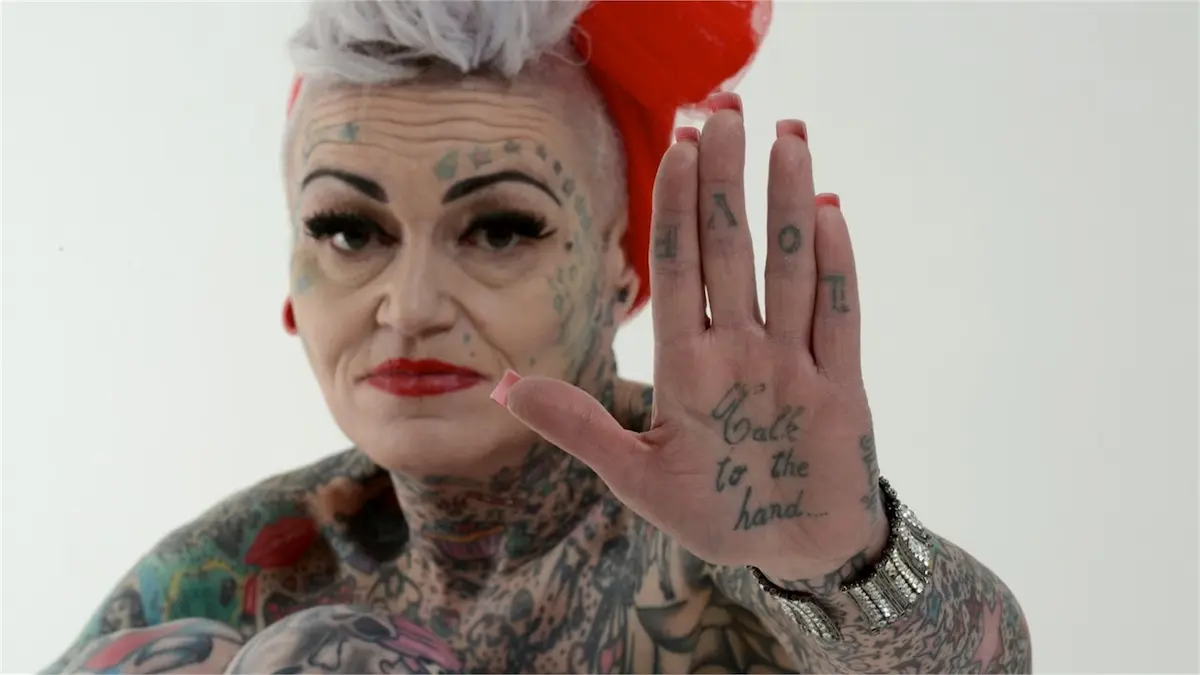So, you’ve finally gotten the tattoo that you’ve always wanted. Now what? It has a great appearance, is glossy, and is complimentary. However, if you do not adequately care for your tattoo, it will begin to fade and may even become infected throughout the healing process. The good news is that cleaning and caring for your tattoo isn’t a challenging task as long as you do it properly and as soon as you notice something is wrong.
Our goal with this post is to walk you through the process of cleaning your tattoo as painlessly and swiftly as possible. By following the instructions in the following sections, you’ll learn how to care for your tattoo while it’s healing and how to make it last longer.
Keeping Your Tattoo Clean Is Very Important
As you may be aware, the tattooing procedure entails using a small needle to puncture through the outer layer of your skin to draw ink, which transforms your tattoo into the work of art that it is today. Every time your skin is punctured, the inside layers of your skin are exposed to the possibility of bacterial infections.
The skin and the air contain dozens of germs, and leaving the skin exposed allows these bacteria to enter your bloodstream and cause illness. It’s critical to take good care of your tattoo while it’s healing and after that to avoid the unwanted redness, pain, and potential infection that might lead to a negative outcome for you.
This is something that many other people have told you. If you haven’t received your tattoo yet, your tattoo artist would most likely urge you to do so as soon as possible, provided that he has the necessary expertise and is a certified tattoo artist, of course.
After completing the tattoo, your tattoo artist will clean the tattoo with antibacterial soap and will most likely encourage you to do the same. They’ll also repair and wrap your tattoo in a sterile bandage to protect it from infection. However, the initial tattoo wash has the most impact on the quality of the tattoo and the prevention of undesired side effects.
The tattoo must be cleaned immediately once it is removed from its wrapping at home, and we’ll show you how to do so in the next section, as well as how to care for the tattoo throughout its first month of healing.
Tattoo Aftercare: What You Need to Know
Following your tattoo artist’s completion of your tattoo, it is time to begin the healing phase, which may last anywhere from a week to a couple of weeks, or even a whole month. You must take good care of your tattoo during this period and clean it regularly. Here are a few pointers on how to go about it.
Speak with your tattoo artist about it
The first thing you should discuss with your tattoo artist is how you intend to care for your tattoo once it has been completed. They will urge you to use sterilized and antibacterial patches and antibacterial soap while washing the tattoo and avoid taking direct baths to avoid infection.
A thin coating of petroleum jelly will be applied to your new tattoo, and it will be bandaged immediately afterward to prevent air from getting into the wound.
Always deal with tattoo artists who are qualified and who will professionally conduct themselves. Read reviews, listen to suggestions, and compare and contrast different pricing options. Even though some tattoo artists may charge more than others, it’s essential to establish a trusting relationship with the individual who will stab a needle into your flesh and ink you.
The first 24 hours are critical
Immediately after your tattoo artist has finished caring for your tattoo and bandaging it, you should refrain from touching or removing the bandage for the first 24 hours. In most cases, the skin will burn and pulsate, and the wound will be painful. Some pain relievers, such as paracetamol and ibuprofen, can help to alleviate the discomfort.
After the first 24 hours, the bandage should be removed and thoroughly cleaned with cold water and antibacterial soap. Gently press it on the wound in a circular motion, then let the water wash it away thoroughly.
Instead of scrubbing the wound, pat it dry with a cotton-made towel that feels soft to the touch.
Observation: The following are a few antimicrobial soaps that are excellent for tattoo cleaning:
- Dettol Body Wash is a popular choice among consumers.
- Tattoo Goo Deep Cleansing Soap is a product manufactured by Tattoo Goo.
- H2Ocean’s Blue Green Liquid Soap is a refreshing and energizing alternative to traditional soap.
- Dial Antibacterial Liquid Hand Soap is a liquid antibacterial hand soap.
- Dial Gold Deodorant Soap with Antibacterial Protection
Cleaning Routines for During and After the Recovery Process
Continue caring for your tattoo beyond the critical first 24 hours, as well as throughout those first 24 hours until it has been thoroughly cleaned.
Many health professionals and tattoo artists recommend that you avoid having a bath or going swimming, instead opting for brief showers to clean up after your tattoo.
While your tattoo is being cleaned, follow the instructions below for a cleaning plan for it.
- When washing your tattoo once or twice a day, get an antibiotic ointment and apply it directly to the tattooed areas.
- When washing and applying ointments, limit the number of bandages you use every day to one.
- Vaseline is an adequate antibacterial ointment substitute that is also inexpensive.
- Antimicrobial soap and cold water should be used to clean your tattoo. After some time has elapsed, you can switch to lukewarm water.
- Instead of scrubbing after cleaning, always pat the area dry.
- Avoid wearing synthetic materials or clothing that is too tight and adheres to your skin.
- Dress in loose-fitting, breathable garments that will allow your tattoo to breathe properly.
- Take care not to take a shower with too much hot water.
It is recommended that you follow this cleaning procedure for one week to one month. Additionally, avoid activities such as strenuous exercise that can cause excessive sweating on your skin, as well as pool activities such as swimming and prolonged exposure to the sun.
Even after a month has passed and the tattoo has nearly entirely healed, it is recommended that you apply a moisturizer to your tattoo every time you clean it to keep it from drying out.
Note: Remember that you should avoid scratching or peeling the skin around your tattoo while it is healing. New skin deposits will naturally grow as your skin heals, allowing the old skin deposits to be shed. It is typical for the tattoo to ache and even burn for a short period after applying it. Despite this, you should avoid handling it until it has completely healed on its own.
After your tattoo has healed, pay a visit to the tattoo studio
According to what we previously stated, scraped and peeling skin might cause your ink to fall behind, which is a natural part of the tattooing procedure. After your tattoo has healed, you should not be afraid to see your tattoo artist and discuss your tattoo’s aftercare options with them in greater detail.
Suppose the tattoo studio is respectable and dependable. In that case, it will also provide free retouching services to guarantee that your tattoo is beautiful and in the proper form once it has been completed. Typically, clients return to the tattoo studies six weeks after the procedure, when the tattoo has completely healed.
What is the best way to care for your summer tattoo?
Tattoos are designed to last for a long time, if not almost indefinitely. However, with time, owing to exposure to water, salt, sunlight, scratching, peeling, and other reasons, it will lose its luster and begin to peel and fade as a result of these and other circumstances. Preventative measures are preferable to curative measures, so here’s what you can do to keep your tattoo in its original shape and keep it looking dashing for a long time.
Sun exposure is one of the most common causes of a faded tattoo that appears too quickly after application. That is why we have compiled a list of recommendations for staying calm throughout the hot summer days.
Here are some pointers:
- Daily moisturizing is recommended. Even a roll-on can help you avoid excessive perspiration, which can cause your tattoo to lose its natural luster and luster.
- Use sunscreen every day, especially if you’re working outside and leaving the tattoo exposed, or if you’re going to the beach or the pool.
- It’s preferable to use sunscreen with an SPF of 45 or higher to protect the tattooed region.
- Before purchasing, ensure that the physical blocker sunscreen contains at least 7% zinc oxide.
Note: Please keep in mind that you should avoid the sun if you have just had your tattoo and the temperatures are high outside. Cover your tattoo with cotton clothes or another breathable material to keep it safe from the sun.
When Should You See a Doctor?
Again, tattooing is painful, and the healing process can be lengthy, especially if there are any adverse effects to consider. However, if your tattoo is scrabbling excessively, or if you have cleansed or cleaned the wound too forcefully, and it is causing some undesired side effects, such as skin infection, you should see a doctor right away to get it fixed.
Consult your doctor if you experience any of the following symptoms:
- Your tattoo wound starts to seep a little bit.
- Initially, your tattoo will have a lot of extra scabbing that will linger for an extended period of time.
- You are experiencing the symptoms of a fever or have a high temperature.
- The swelling around your tattoo wound hasn’t subsided for more than a week after you had it done.
- Even after using a moisturizer or other ointment, an enormous rash remains that does not go away.
Finally, if you are still experiencing the agony that you were experiencing when the edema was there, you should consult with your doctor. Skin infections connected with tattooing might be indicated by an itchy sensation, rash, and other redness and pain on or around the tattoo site.
Also, keep in mind that getting inked by a professional, competent, and experienced tattoo artist is essential for the best results. It would be beneficial if you avoided gambling or playing with your health since this might have negative consequences for both you and your health.
